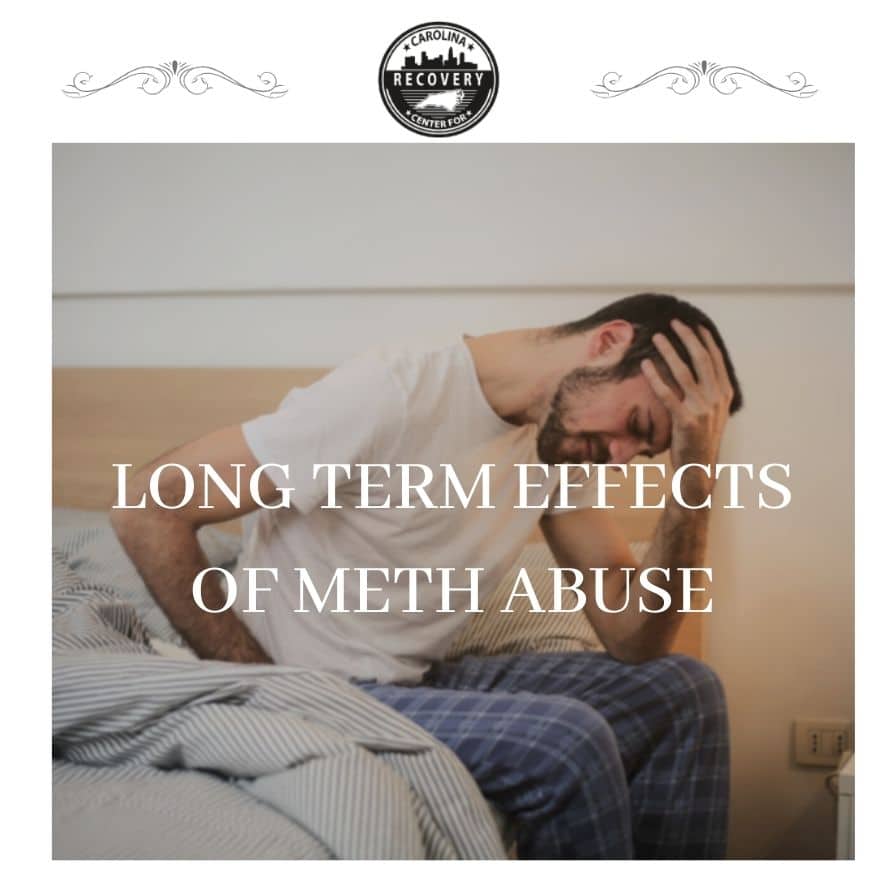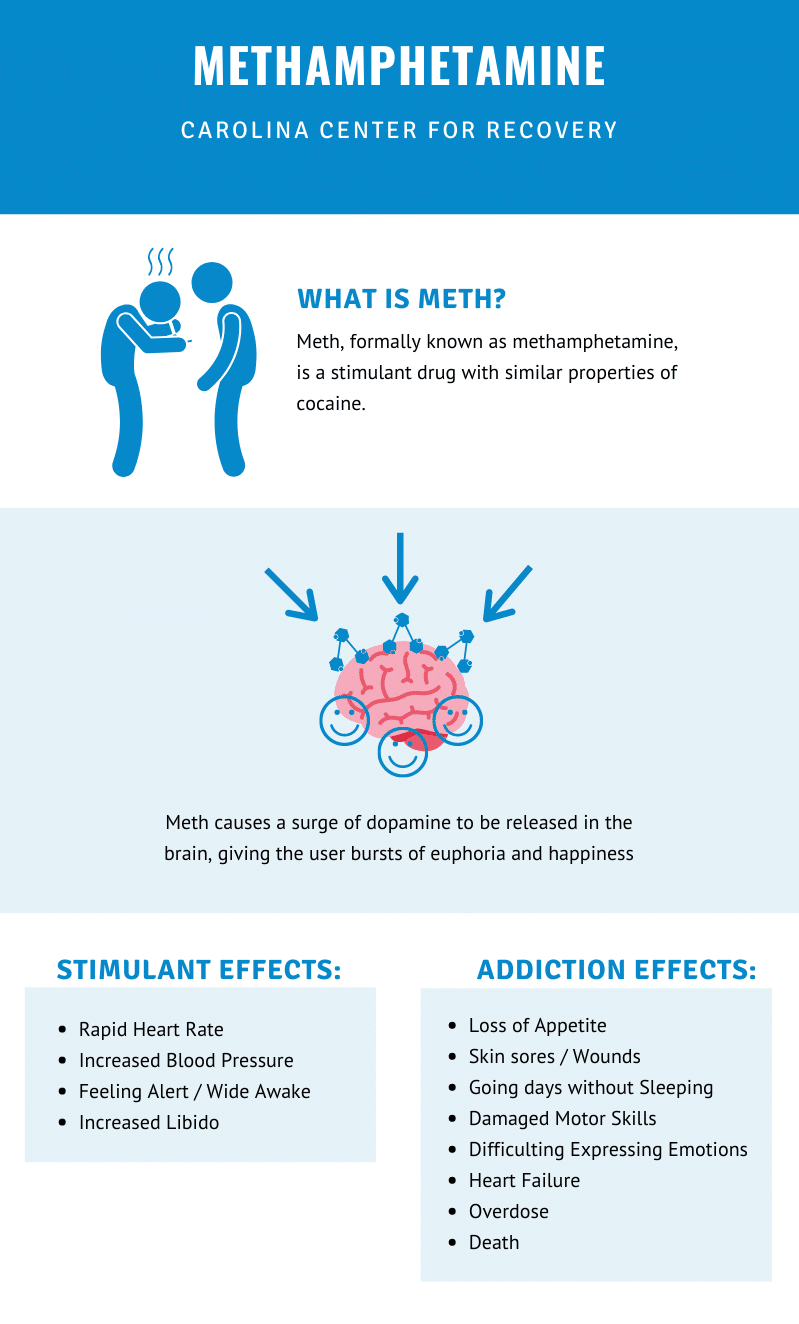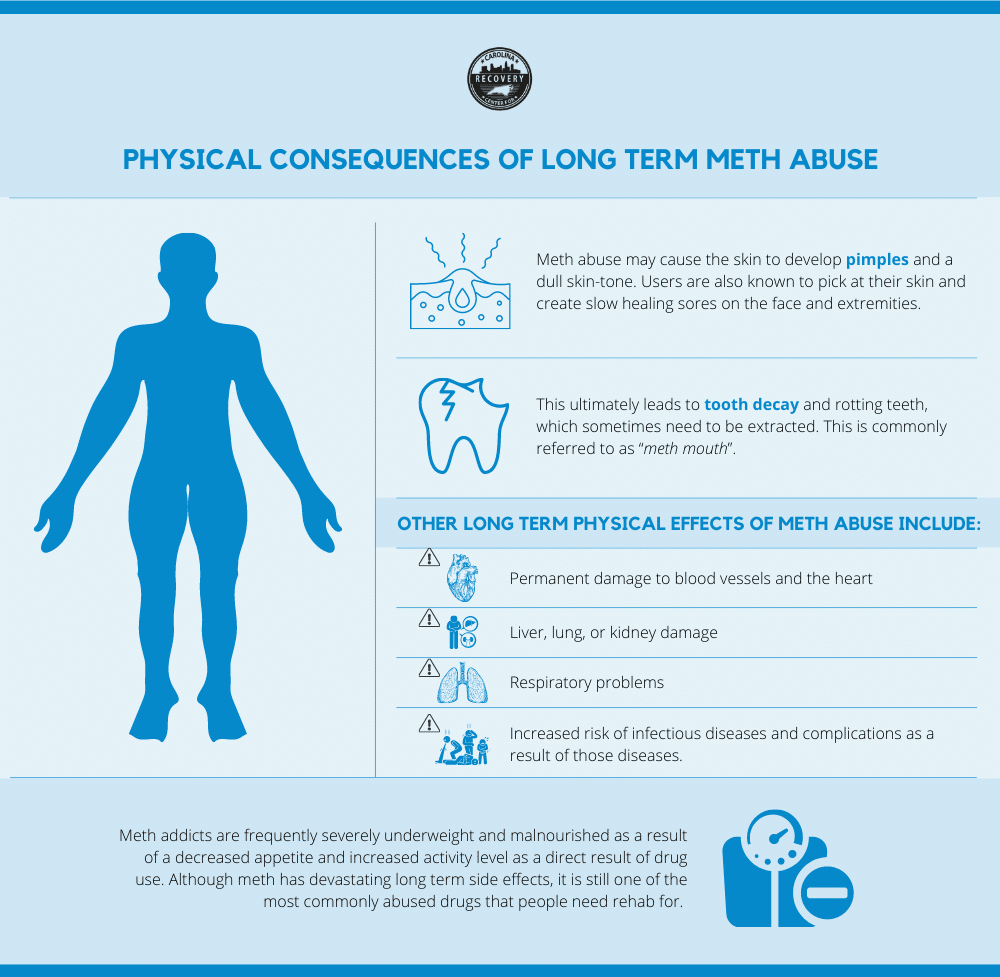Long Term Effects Of Meth Abuse

Medically Verified: 2/1/24
Medical Reviewer
Chief Editor

All of the information on this page has been reviewed and verified by a certified addiction professional.
Prolonged meth abuse has many negative effects on the body. Meth is a highly addictive stimulant, which is a substance that raises levels of activity in the body. It is commonly known by names like ice, glass, and crystal. Many people who get high on meth experience numerous consequences, both short term and long term, that are devastating to the mind and body. Most individuals who abuse this dangerous drug end up getting addicted to it over time.
Meth produces feelings of euphoria when it is smoked, snorted, or injected. As individuals continue to use meth, they develop a tolerance to the drug, meaning they need more and more of it to get the desired effect. This drives people to take extremely high doses of meth in order to get high. However, increasing the number of drugs taken also increases the risk of addiction and harmful side effects to the user.

Physiological Effects Of Long Term Meth Use
Methamphetamine increases levels of dopamine, the neurotransmitter in the brain that is responsible for feelings of pleasure and reinforcing behaviors. It does this by blocking both dopamine reuptake and increasing dopamine release in the brain. This leads to very high levels of dopamine and causes feelings of pleasure and euphoria – which is what makes meth so addictive. However, these high levels of dopamine are toxic to the brain and body in the long term, especially for individuals with co-occurring disorders or physical health ailments. Eventually, the overflow of dopamine ends up producing some unpleasant effects that manifest as withdrawal symptoms.[1]
In addition to producing feelings of euphoria, meth also:
- Increases physical activity
- Increases wakefulness
- Reduces fatigue
- Reduces appetite
- Increases breathing and heart rate
- Disrupts sleeping patterns
- Increases aggressiveness and irritability
Neurotoxic Effects Of Meth Addiction
Methamphetamine has an exceptionally long half-life. As a result, the substance stays in the bloodstream and acts on the brain longer than most other amphetamines. Due to the long-lasting nature of meth, it has the ability to do more harm to users compared to similar drugs, like cocaine.[2] Some common neurological side effects of meth addiction include paranoia, auditory or visual hallucinations, and delusions. Users may also develop other symptoms such as anxiety, depression, and violent mood swings.
Research shows that meth abuse actually alters the structure of the brain. In fact, meth addicts have negatively impacted mental flexibility (the ability to shift a course of thought), decision making, language learning, and motor function.[1] The long term effects of meth are also shown to increase the risk microglia, which are immune cells found in the brain that defend it against infection and other pathogens. An increase in microglia causes them to harm otherwise healthy neurons. This results in subsequent brain damage and cognitive problems down the line.
Physical Consequences Of Long Term Meth Abuse

In addition to devastating neurological damage, meth abusers also suffer consequences that are apparent in their physical appearance. Meth abuse may cause the skin to develop pimples and a dull skin-tone. Users are also known to pick at their skin and create slow healing sores on the face and extremities. Furthermore, this ultimately leads to tooth decay and rotting teeth, which sometimes need to be extracted. This is commonly referred to as “meth mouth”.
Meth addicts are frequently severely underweight and malnourished as a result of a decreased appetite and increased activity level as a direct result of drug use. Although meth has devastating long term side effects, it is still one of the most commonly abused drugs that people need rehab for.
Other long term physical effects of meth abuse include:
- Permanent damage to blood vessels and the heart
- Liver, lung, or kidney damage
- Respiratory problems
- Increased risk of infectious diseases and complications as a result of those diseases.
Meth Addiction In North Carolina
North Carolina is home to a large number of people who suffer from meth addiction. While some methamphetamine is smuggled in from other countries, a large portion of it is made locally in clandestine at-home meth labs. As a result, the drug is particularly dangerous as people never know exactly what they are getting. Batches can contain dangerous substances, like battery acid, formaldehyde, paint thinner, and more. All of these toxic chemicals contribute to the long term effects of meth abuse. However, due to its wide availability, it is the most commonly abused stimulant in the United States.[5]
Methamphetamine abuse is on the rise. In just one year, the number of people reporting meth addiction increased from 684,000 in 2016 to 964,000 in 2017 (aged 12 and older).[6] Due to its highly addictive nature, it is often advisable for people suffering from meth addiction to seek care at an accredited rehab or treatment center.
Treatment For The Long Term Effects of Meth Abuse
Unlike other drugs, there is no FDA approved medication to counteract the effects of methamphetamine. For this reason, it is very important to have a rigorous course of counseling and therapy in place to assist with the emotional and physical consequences of meth abuse. At our treatment facility in North Carolina, we have a staff of highly trained clinicians who will help you every step of the way. They are prepared to develop treatment plans that fit each individual’s unique needs – starting with detox. Recovering from meth addictions is difficult, but the staff at Carolina Center For Recovery is here to help.
- https://www.drugabuse.gov/publications/research-reports/methamphetamine/how-methamphetamine-different-other-stimulants-such-cocaine
- https://www.drugabuse.gov/publications/research-reports/methamphetamine/what-are-long-term-effects-methamphetamine-misuse
- https://www.drugabuse.gov/publications/research-reports/methamphetamine/what-are-immediate-short-term-effects-methamphetamine-misuse
- https://www.northcarolinahealthnews.org/2017/05/26/a-new-meth-surge-gathers-momentum/
- https://www.drugabuse.gov/publications/research-reports/methamphetamine/what-scope-methamphetamine-misuse-in-united-states

